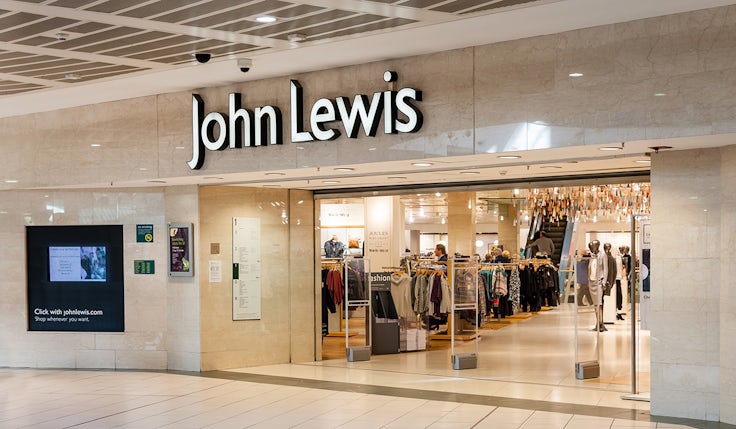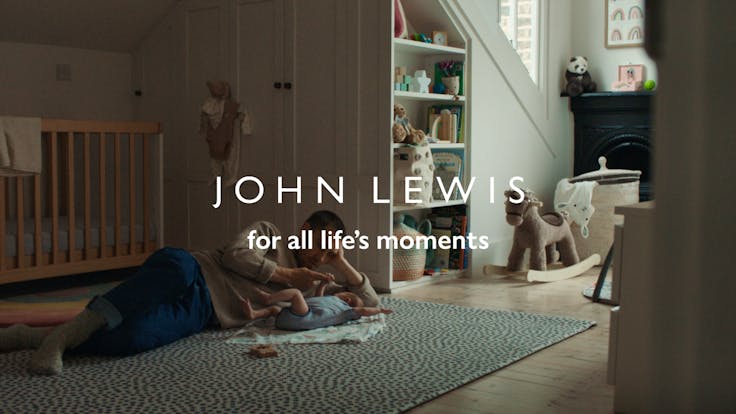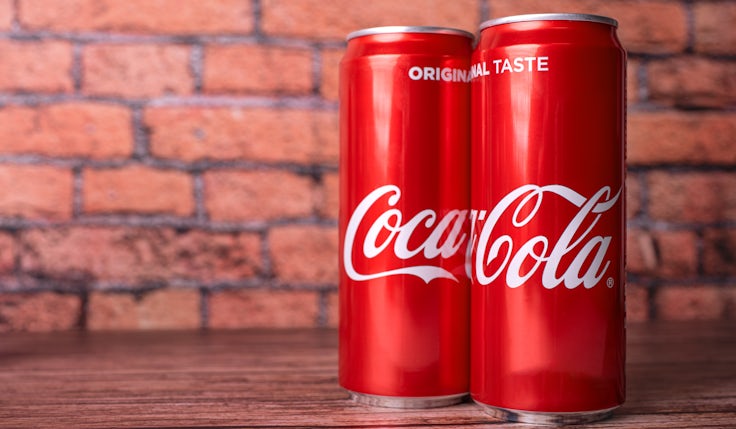John Lewis recruits 1 million new customers amid return to profit
The retailer claims value is still at the ‘centre of its gravity’, while work on a proposed pan-partnership loyalty scheme continues.
 John Lewis claims it has made “significant progress” towards its strategic goals amid a swing back to profitability.
John Lewis claims it has made “significant progress” towards its strategic goals amid a swing back to profitability.
The department store chain notched up £56m in pre-tax profit in the year to 27 January, up from a loss of £234m in 2022/23, success John Lewis attributes to sales growth, improved gross margin and increased productivity.
The business attracted one million new customers to reach 22.6 million, with Partnership sales up 1% to £12.4bn.
Despite the profit gains, the retailer confirmed it will not reinstate its Partnership Bonus – only the third year no bonus has been awarded since 1953. The business claims that at this point in its “transformation” the intention is to invest in retail and instead pump a “record” £116m into pay this year.
The rollout of the first pan-partnership loyalty scheme remains under development. Slated for introduction this year, the business hired former Tesco head of loyalty strategy Emily Wells in April 2023 to lead the work as its first group head of loyalty.
‘We always follow the customer’: John Lewis’s marketing boss on its loyalty plans
On a call with journalists today (14 March), Waitrose executive director James Bailey told Marketing Week the loyalty plans are well under way.
“We’re expecting some material changes behind the scenes through the coming year and some quite significant improvements for our customers as we join the two schemes together and we get that double benefit of John Lewis and Waitrose working together,” he said.
“No more detail than that, but to say there’s a lot of improvement incoming this year and the following year.”
John Lewis sales fell 4% to £4.8bn in the year to 27 January, with gains in fashion and beauty dragged down by weaker trading across home and technology. The retailer did, however, attract a record 13.4 million customers, generating an operating profit of £689m, up £13m year-on-year.
We’re expecting some…significant improvements for our customers as we join the two [loyalty] schemes together and we get that double benefit of John Lewis and Waitrose working together.
James Bailey, Waitrose
More than 170 new brands were introduced over the year period, with plans to bring in a further 80 brands and strengthen the own brand proposition. Digital is proving increasingly popular, with 53% of John Lewis customers shopping online. The idea is to invest in the online experience through easier navigation and personalised product recommendations.
For John Lewis executive director Peter Ruis, who rejoined the business in January after 11 years away, the focus is on getting the retailer’s mojo back.
“The confidence, the inspiration and the innovation of the John Lewis department store chain. There’s lots of options to do that. Retailers are eternally dissatisfied people and all of us can see many ways of improving that opportunity. So going back into growth in terms of sales and inspiring all of our customers,” he told the media.
This focus will mean continued investment in stores, including doubling the size of the retailer’s beauty hall in its Oxford Street flagship this autumn. Attention will also be paid to delivering value by offering a “really good opening price”.
“Anyday [its own brand offering] is part of that and continues to be important to us and you’ll see a significant amount of our proposition with a strong opening price position,” Ruis explained. “Then we continue to match price against our key competitors in the branded areas, so value is still at the centre of our gravity.”
‘Unashamed’ focus on retail
Sales at Waitrose rose 5% to £7.7bn, with profit up £170m to £1.06bn. The chain invested £100m in lower prices over the year, which helped grow customer numbers by 8.1% to 15 million.
Volume sales fell 1.5% compared to the year prior, with the price of an average item up 6.6% as inflation took its toll. However, Waitrose saw customers respond to its ‘New Lower Prices’ campaign, helping to drive volume growth over four months of the second half.
Bailey confirmed Waitrose will continue to invest in price, adding that the business has money in the plan to keep investing in value for the next four years. That said, as inflation begins to ease, Waitrose is seeing customers shift away from buying exclusively based on price. Bailey pointed to increasing demand for organic, higher welfare and more expensive items.
Emphasising ‘the John Lewis difference’: Inside the Partnership’s choice of new agency
“People are still careful, buying on promotion,” he explained. “They’re using the My Waitrose voucher scheme and the £100m we’ve invested in price is still driving lots of new customers, but we are starting to see the shift into those more considered purchases, higher quality items and the kind of higher quality, better sourced products that Waitrose stands for.”
From a creative perspective, Bailey said the business is pleased with the start it has made working with new creative agency Saatchi & Saatchi, which replaced Adam&EveDDB after 14 years last summer.
“They really get what the brand stands for. Obviously in Waitrose we’re excited about doubling down on ‘Food to Feel Good About’. You’ll see much more execution on that and the early evidence suggests it’s been very effective and really resonates with our customers,” Bailey added. “So far, so good.”
The £100m we’ve invested in price is still driving lots of new customers, but we are starting to see the shift into those more considered purchases.
James Bailey, Waitrose
From a wider business perspective, John Lewis confirmed it will remain fully partner owned after news spread last spring the retailer was considering selling a minority stake.
While the intention is to “unashamedly focus” on retail, the organisation plans to continue investing in its rental home proposition and financial services business, the latter grew by 15% over the year. John Lewis was, however, unable to give a specific timescale for when its first rental home would be on the market.
“We see this as a family of businesses and the current focus is about leveraging the high potential of our existing brands – both Waitrose and John Lewis. For the longer term we do see the benefits of BTR [buy to rent] and FS [financial services], but they’re in different time horizons,” explained John Lewis Partnership CEO Nish Kankiwala.
“BTR is something we can leverage in the long run to build our balance sheet and financial services is supporting our retail businesses today.”
Looking ahead, the business plans to invest £542m – up 70% on last year – on modernising technology, refreshing its shops and simplifying how it works, with outgoing chairman Sharon White highlighting the modernisation of the John Lewis brand as a key step forward.







